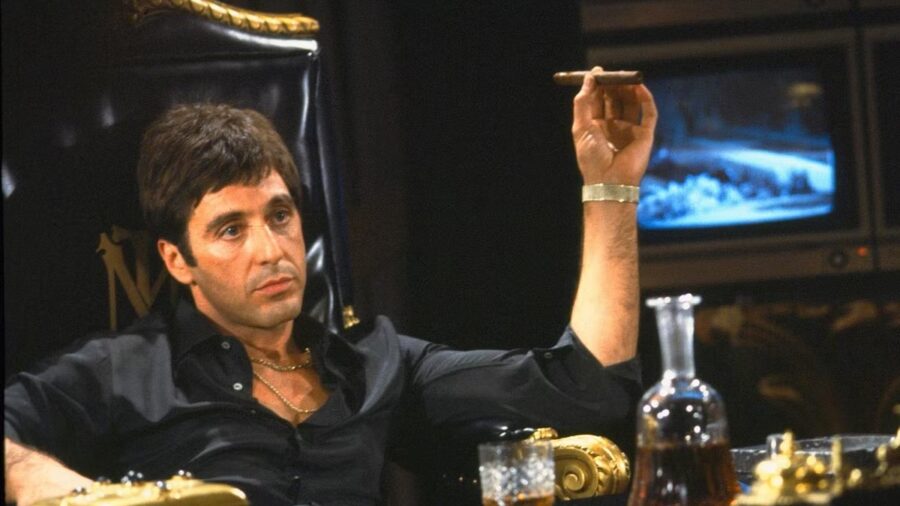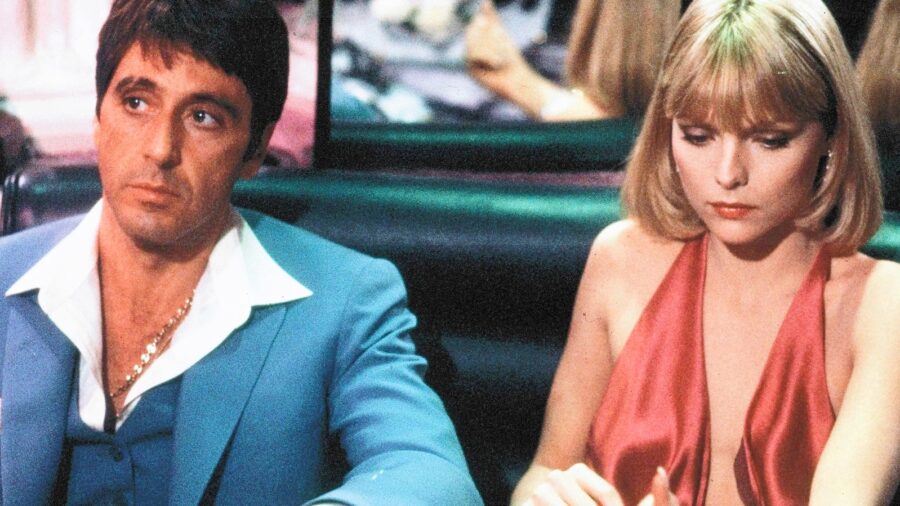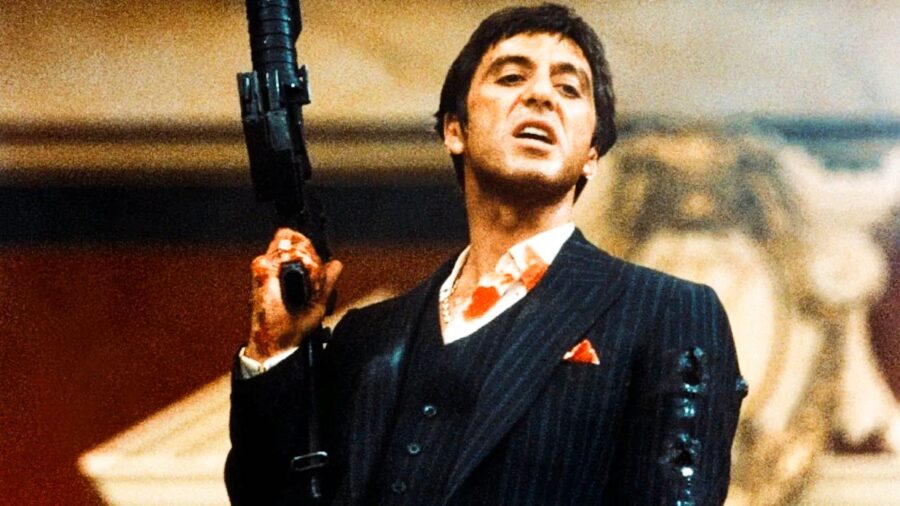An Iconic Al Pacino Film Is Leaving Netflix
Al Pacino's iconic 1983 film Scarface is leaving Netflix on October 31.
A career like Al Pacino’s is the stuff of legacy, attributing much of his critically acclaimed success to starring roles in celebrated projects like The Godfather trilogy, Dog Day Afternoon, …And Justice for All, Glengarry Glen Ross, and Scent of a Woman. However, it is his portrayal of Tony Montana in Brian De Palma’s seminal work, Scarface, that has stood the test of time to become one of Al Pacino’s most iconic and quoted films. Scarface is currently available to stream on Netflix, but will be leaving the subscription streaming platform on November 1, so now is the time to revisit the crime drama before it’s too late.

Scarface was released in theaters in 1983 and starred Al Pacino as Tony Montana, a refugee from Cuba that ends up becoming one of the most prolific drug lords in American history through the sale of cocaine and other drugs that took over Florida. A fixture of the Miami drug scene, Tony Montana acquires great wealth throughout his violent exploits and escalates his erratic behavior to reach powerful and homicidal heights, concluding with an iconic shootout and bloody climax.
The film is loosely based on the 1932 movie of the same name directed by Howard Hawks, but the 1983 version has mostly eclipsed its original to become one of the most famous gangster films to enter the genre, due in large part because of the violence demonstrated and quotes uttered by Al Pacino towards the end of the film.

Along with Al Pacino, Scarface costarred Michelle Pfeiffer in one of her earliest film roles post-Grease 2 as Elvira, Montana’s love interest and eventual wife. Originally attached with renowned director Sidney Lumet attached, Brian De Palma took over directing duties on the film and hired Oliver Stone to write the screenplay after Stone’s successful writing career took off with an Academy Award win for 1978’s Midnight Express.
Actors Steven Bauer, Mary Elizabeth Mastrantonio, Robert Loggia, F. Murray Abraham, and Miriam Colón rounded out the impressive cast to be now regarded as a cult-favorite classic.
Scarface was an interesting move for actor Al Pacino at the time, as he had started to become typecast because of the massive cultural event that was The Godfather and other similar films of the era. However, the movie was a financial success for Universal Pictures when it debuted in theaters on December 9, 1983, going on to gross $66 million at the box office against a budget of around $37 million.
Notable writers and directors that have made their name in the gangster genre such as Martin Scorsese have come out in defense of the movie, as it has since become a heavily referenced subject matter in pop culture and music since the mid-1980s.

Because of Scarface’s depiction of extreme violence, prolific drug use, and excessive profanity in a pre-Quentin Tarantino era, the movie met a mixed to negative reaction upon release. However, the movie has reached critically-acclaimed status in the four decades since, with Rotten Tomatoes currently ranking Scarface as Certified Fresh with an 81% on its Tomatometer based on 69 reviews, as well as an Audience Score of 93% based on over 250,000 ratings from users to the site.
With many critics praising Al Pacino’s performance as Tony Montana in the movie, Metacritic reflects a Metascore of 65 based on 9 critics’ reviews and a User Score of 8.7 based on 784 ratings from users to the site, typically denoting generally favorable ratings from critics and universal acclaim from audiences.
Many actors and directors have subsequently been influenced by Scarface’s take on criminal activity in the drug trade, as well as Al Pacino’s performance as Tony Montana. The movie is regarded as one of the first high-profile feature films to use “f*ck” consistently throughout the film, which Family Media Guide reports is used 207 times throughout the film’s 170-minute runtime.
The use of expletives in movies released theatrically to a wide audience has influenced other directors like Martin Scorsese and Quentin Tarantino to do the same thing in major projects like Pulp Fiction, Gangs of New York, Casino, The Wolf of Wall Street, and Jackie Brown, which have become legendary crime dramas for those directors and the genre in general.












